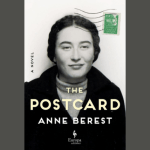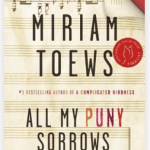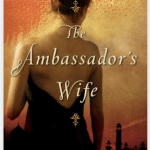 The Boy Who Loved Anne Frank by Ellen Feldman
The Boy Who Loved Anne Frank by Ellen FeldmanMy rating: 5 of 5 stars
I’m always trying to do more things than the number of hours in a day allows, so it is rare that a book is powerful enough to make me put aside everything else (well, almost everything) and focus on reading it to the end. The Boy Who Loved Anne Frank, by Ellen Feldman, is one of those rare books. Obsessed as I was with work and family in 2005 when it came out, I missed it then. Luckily, books remain available long after their publication date. If you haven’t read this one, get it now!
Inspired by incorrect information from a tour guide at Anne Frank house, who told the visitors that the fate of everyone who hid in the secret annex was known except for that of Peter van Daan, Feldman’s book imagines what might have happened had Peter survived. (In fact, the Red Cross concluded that he died in the Mauthausen concentration camp three days before it was liberated.) The novel supposes that after being released he ultimately made his way to the United States. Tall, blue-eyed, German-accented, and almost Aryan-looking, he decides to pretend not to be Jewish, in the hopes of protecting himself and someday his children from ever being subjected to Hitler-like atrocities.
That, of course, involves a delicate and confusing balance. He has numbers tattooed on his arm, and doesn’t deny having been in a concentration camp, but it leaves people confused about where to place him: good guy or bad guy? Jew or Jew-hater?
As an unreliable narrator, Peter’s skills in self-deception are reminiscent of those of Stevens, the butler in Kazuo Ishiguro’s brilliant book, The Remains of the Day. Peter keeps trying to distance himself from those he denigrates as having been unable to move on with their lives and put the past behind them. Yet, despite his claims to the contrary, the past is haunting him too and he isn’t doing nearly as well as he pretends.
The author does an outstanding job of showing the complexity of his situation and his emotions. As an aspiring novelist myself, I was also struck by the beautiful writing and turns of phrase. Those of you who think “literary fiction” is too slow, don’t worry: the plot keeps the pace moving quickly. But as you read you can also savour descriptions such as:
“Shadows swallowed the corners of the room. Beneath the window, an air conditioner muttered intelligible threats. Against one wall, a black leather chaise crouched. I gave it wide berth…”
Or, when he has his first serious girlfriend in America: “We were so sure we had a future, we were beginning to build a past… We walked the streets, our fingers linked together in a pickproof lock against the world.”
When he finds himself drawn to a synagogue, despite his reluctance to have any association with Judaism: “A chorus of amens rose to the ceiling like a flock of birds flushed out of a swamp. They would have made easy targets.”
I suspect the book would work well even if you are one of the rare people who haven’t read the diary of Anne Frank (or seen the movie or a play based on it). That said, especially given that the diary figures prominently in the plot, it would probably be a good idea to either read or watch The Diary of a Young Girl, by Anne Frank, first. You don’t need to remember all the details, so if you read it a long time ago, don’t worry: get yourself a copy of The Boy Who Loved Anne Frank and dive in. You will be moved by the story, the many ethical issues it raises, and the gorgeous writing.
[Although I know we all perceive books differently, I was surprised by the mixed reviews on Goodreads. Reading them it seems that many people were expecting the book to be about a romance between Peter and Anne. So I’ll warn you now: that’s not what the book is about.]
View all my reviews





[…] and be accepted in the new land. Whether it is Jews in France (e.g. The Postcard) or America (e.g. The Boy Who Loved Anne Frank), Koreans in Japan (e.g. Pachinko)¸or, as in A Great Country, Indians in California, even […]
Thanks for commenting, Sally. I don’t think you need to have read the Diary of Anne Frank first, but you probably get more layers out of The Boy Who Loved Anne Frank if you’ve read the Diary.
Like Tema, I was hooked and burned midnight oil to finish the book.
I read and respected Ann Franks’ Diary but because the memories in Rhe Boy Who Loved Ann Frank were so clear, wonder if there is really need to read it first.